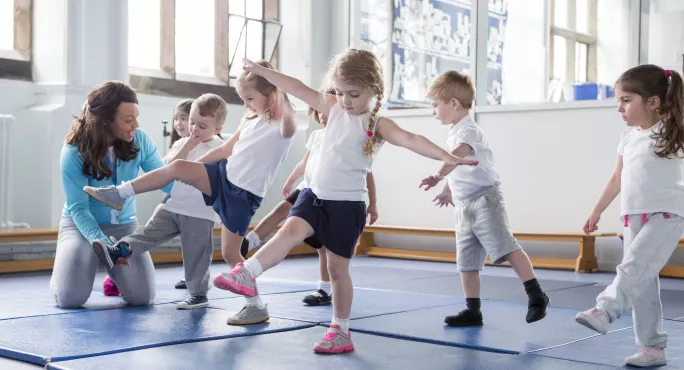There are, in these research-informed times, certain terms that mark you out instantly as a heretic. Mention “learning styles”, for example, or “project-based learning” and you’ll get a withering look that says, “Where are you from, 1995?!”
It is very easy to dismiss such approaches and the people who bring them up, and social media goalhangers certainly get a lot of satisfaction out of it.
“Brain Gym” is a term that very definitely falls into the heretic category, but I harbour a suspicion that its similarity to strategies used with some children with special educational needs and disabilities can cause some serious issues. It can result in instantaneous dismissal of those other educational approaches without proper consideration of what they are, the research supporting them and what they are trying to achieve.
Brain Gym and other fads
Have you ever heard of the vestibular system? It is a part of our nervous system centred in our inner ear. It provides us with a sense of balance and tells us if we are speeding up or standing still, and if we are upright, upside down or bending over. It helps us to stay upright against gravity and to stabilise our eye movements when we are moving.
Together with the proprioceptive system (another part of our nervous system that informs us about what the various parts of our body are doing and that allows us to write or to catch a ball), it helps us to control how our body is orientated in space and what it is doing.
When these systems don’t work very well, a child may have poor balance, can appear clumsy or they may press too hard with their pencil. There can also be issues with maintaining attention to tasks and there can be an increase in self-stimulating movement, such as rocking, bouncing or spinning.
The real story
You will immediately see that these challenges can hinder a child’s ability to learn well in a lesson, and it can also be disruptive to others.
To support children with these issues, an occupational therapist may recommend that a child take regular movement breaks, both between lessons and in the middle of lessons to provide some proprioceptive or vestibular input.
Movement breaks can take many forms - a child may do something quite subtle like pushing themselves up off their chair with their hands, or they may do things that are more overt, like receiving deep pressure to the muscles and joints (by pushing down on the shoulders, for example).
Special school practice
It is not uncommon in special schools to see children wearing weighted vests or a weighted blanket to achieve the same aim and for there to be sensory circuits each morning as an initial activity to support children being alert for their lessons.
Only this morning, one of our Year 10s was pulling themselves along down the corridor on their belly on a scoot trolley (essentially a wide skateboard) as part of this programme.
I am in no doubt that occupational therapists (as well as speech and language therapists and psychotherapists, by the way) made me a better teacher and certainly helped me better understand behaviour, and I remind colleagues of this when I occasionally hear that non-teachers shouldn’t tell teachers how to do their jobs.
Wrong idea
I often wonder if this is where Brain Gym originated or was bastardised from - a teacher observing a sensory circuit or similar, not fully appreciating the rationale for it and deciding to develop a programme for all children based on it.
It is very easy to scoff at things we regard as silly or faddish, but that does not mean that there are not legitimate strategies out there that support some of our children to behave well that have a rightful place in our schools. Without them, we run the risk of disadvantaging some of the children who already find schools and classrooms difficult places to be successful.
Jarlath O’Brien works in a mainstream secondary school and a special school and is the author of Leading Better Behaviour, published by Corwin Press





